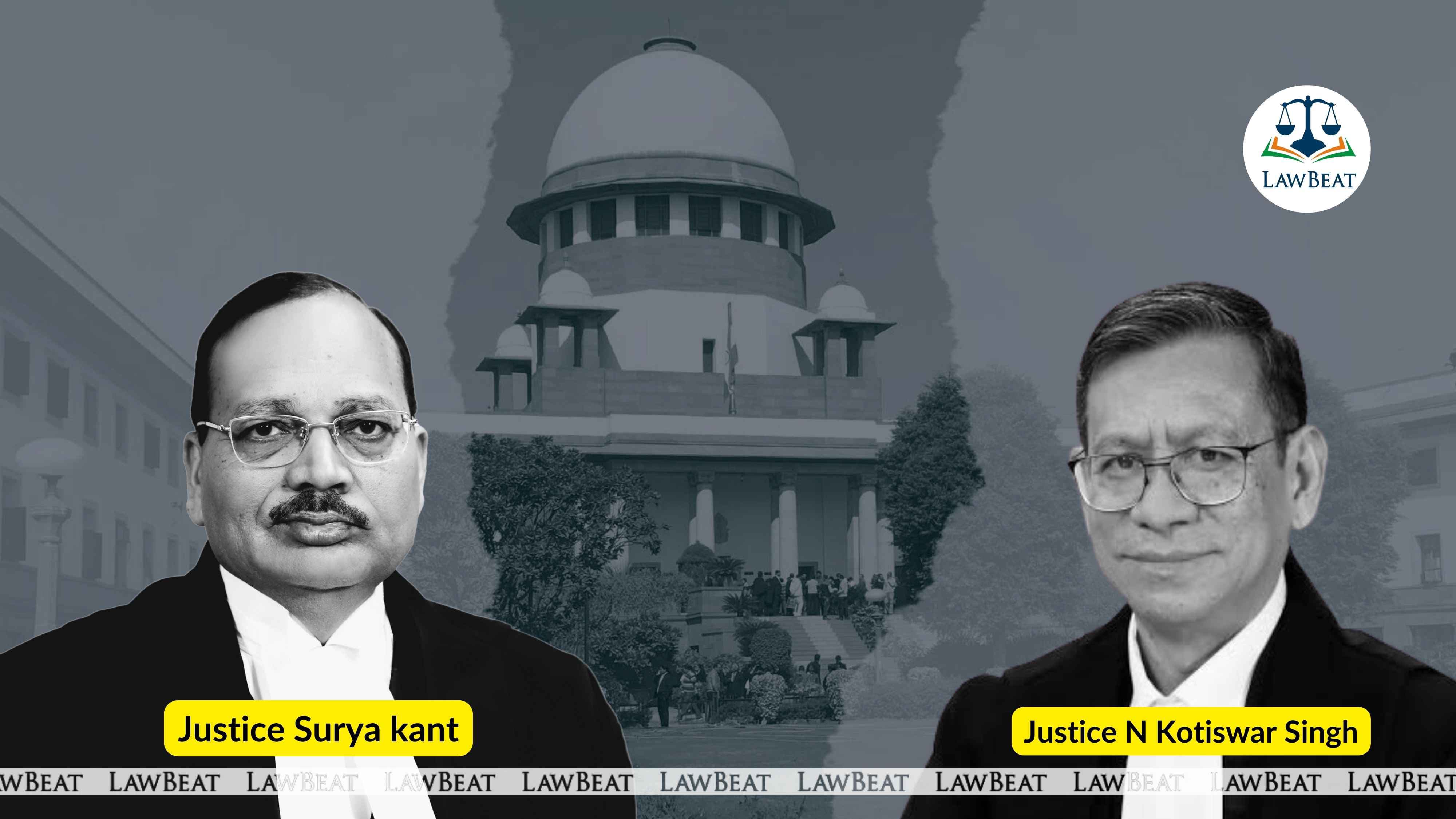'Dowry Continues As A Deeply Entrenched Social Evil,' SC Dismisses Plea For Gender-Neutral Guidelines Due To Misuse Of S.498A IPC

Mere possibility or occasional misuse of a legal provision does not render it constitutionally infirm, either procedurally or substantively, Court said, adding even in the context of Section 498A, it has been reiterated that while misuse must be guarded against, the provision cannot be trivialised or undermined merely because it has, in some instances, been invoked unscrupulously.
In a significant ruling, the Supreme Court observed that the system of dowry remains a pervasive societal ill that affects large swaths of the nation, forcing innumerable women to suffer injustice in secret;This emphasises the ongoing necessity of laws like Section 498A, which remains essential for protecting and redressing the most disadvantageous section.
A bench of Justices Surya Kant and N.Kotiswar Singh said while it is true that instances of misuse have emerged over time, occasionally with the intent to harass families or extort money, such concerns by themselves are rarely sufficient to warrant striking down a statutory provision or diluting its effect.
"This court has consistently held, in a catena of decisions, that the mere possibility or occasional misuse of a legal provision does not render it constitutionally infirm, either procedurally or substantively. Even in the context of Section 498A, this court has reiterated that while misuse must be guarded against, the provision cannot be trivialised or undermined merely because it has, in some instances, been invoked unscrupulously. However, this court has also cautioned that it is not to be treated as a tool to prank assistance or as a means to ‘cry wolf’," the bench observed.
The bench thus declined to entertain the writ petition filed by NGO Janshruti (People's Voice) seeking directions for the formulation of gender-neutral guidelines and legislation governing the filing of domestic violence and harassment complaints.
The plea also sought a declaration regarding the constitutionality of Section 498A of the Indian Penal Code, 1860 (now Section 84 of the Bharatiya Nyaya Sanhita, 2023).
"We are of the considered view that the impugned provisions do not warrant judicial interference," the bench said.
The court explained, this is so because it is well-settled law that courts refrain from intervening in matters of legislative policy or mandate unless the provision in question is: (i) devoid of reasonable justification or basis; (ii) actuated by mala fides or an ulterior motive; (iii) lacking a rational nexus with the object sought to be achieved; or (iv) in violation of Fundamental Rights or any other constitutional provision.
The bench pointed out Section 498A was, in fact, introduced by the Legislature through the Criminal Law (Second Amendment) Act, 1983 with effect from December 25, 1983 - The enactment of the said provision was prompted by a widespread and deeply entrenched exploitation of women through traditional practices such as the dowry system following which the Legislature recognised the need for a specific legal provision to address the grave suffering inflicted upon married women as a result of dowry-related offences.
The court noted that the Legislature, in its wisdom, has continued to retain this provision over the decades, presumably in recognition of the persistent and deep-rooted nature of the underlying social malaise.
"In assessing the constitutionality of such penal provisions, it becomes imperative to strike a delicate balance. While it is acknowledged that certain individuals may face hardship due to the misuse of the provision, it is equally important to look beyond these instances and recognise that the provision serves a constitutionally sound objective. It is aimed at protecting a vulnerable section of society that often requires legal support and institutional safeguards to shield them from systemic abuse and exploitation," the bench noticeably added.
Court emphasised a case-to-case approach because matters of this nature often involve intricate and layered complexities.
It was further asserted that as much as it was cognisant of the growing discourse highlighting instances where the provision may have been misused, there are likely hundreds of genuine cases where Section 498A has served as a crucial safeguard for victims of domestic cruelty.
"We are also aware that certain unconscionable individuals, emboldened by the rising fervor to dismantle such protective provisions, have gone so far as to publicly share videos depicting the exchange of dowry —an act not only unlawful but also indicative of the entrenched nature of the very evil this provision seeks to combat," the bench conclusively said.
Case Title: Janshruti v. Union of India
